Why Does Your Cat Headbutt You?
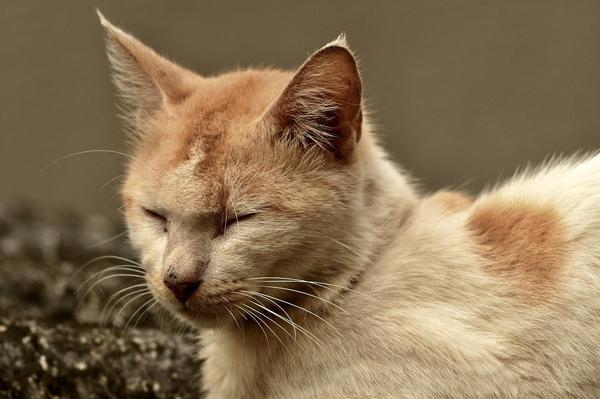
Ever wondered why your cat headbutts you?
Does your furry friend have a secret motive or is it just a random act of affection?
Don't worry, I've got you covered. 😺
Let's dive into the fascinating world of feline headbutts and unravel the mystery together.
Lace up your detective shoes, because things are about to get interesting!
Medical Reasons for Cat Headbutting
Headbutting can indicate dental pain or discomfort
If you've noticed your cat headbutting things like walls or even you, it may not just be a cute behavior they learned from watching too many cat videos.
Sometimes, it can be a sign of dental pain or discomfort.
Just like humans, cats can experience toothaches and oral discomfort.
So, pay attention to any changes in their eating habits, drooling, or pawing at their mouth.
You need to address any potential dental issues.
Excessive headbutting could signal a neurological disorder
Now, here's when you need to be more alert. If your cat is constantly pressing their head against objects, such as walls or furniture, it might be worth consulting a vet right away.
This repetitive headbutting behavior could be a red flag for a neurological disorder that requires immediate medical attention. Make sure to seek professional advice to rule out any serious health concerns.
Your cat's well-being should always take priority.
Your cat headbutts you to show love and seek attention
But don't worry, it's not all bad news.
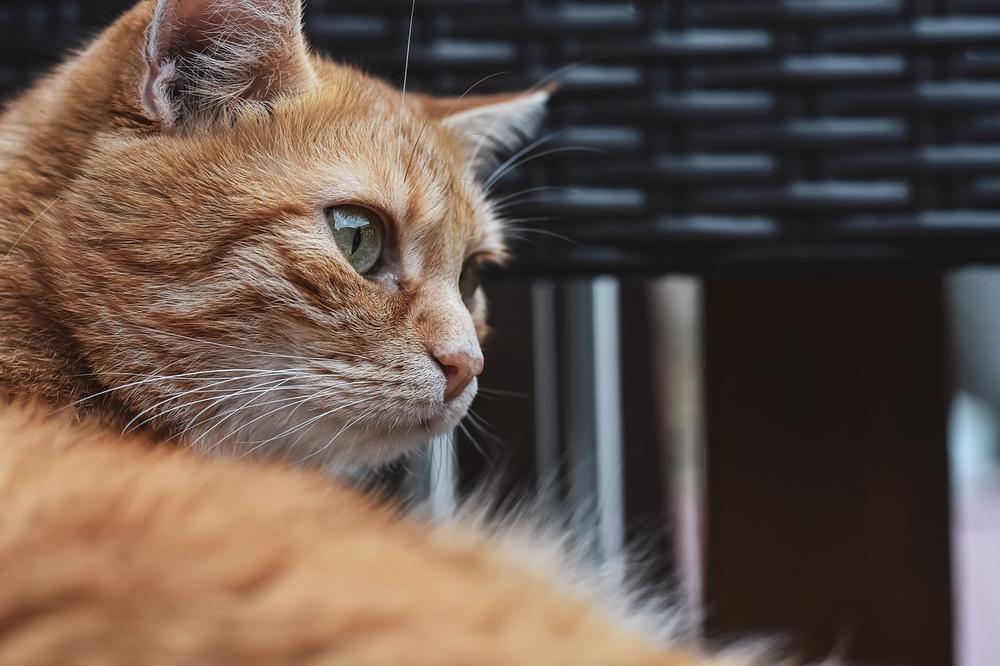
When your furry friend headbutts you, take it as a wonderful compliment.
Cats often use headbutting as an affectionate gesture and a way to seek attention from those they care about - including you.
Embrace the opportunity to respond with some love and give them scratches behind their ears.
Who wouldn't enjoy a little headbutt from their beloved feline companion?
So now that we understand why cats headbutt, let's ensure we're creating an environment where they feel loved and comfortable.
And hey, have you considered getting pet insurance?
It's a smart move to protect yourself from unexpected vet bills.
Taking care of your cat's health is essential and shows how much you value them.
Main points I'll expand upon further down this article:
- Cats use headbutting as a form of communication and bonding.
- Headbutting establishes social hierarchy and shows respect among cats.
- Headbutting is an instinctual behavior found in both domestic and wild cats.
- Male cats are more inclined to engage in headbutting than females.
- Headbutting is a sign of contentment, affection, and trust-building in cats.
- Cats use headbutting to mark territory and establish their presence.
- Headbutting between cats creates a collective scent and indicates a bond.
- Cats may also headbutt objects to transfer their scent onto you.
- Headbutting is a way for cats to seek attention and form bonds.
- Not all cats may respond to headbutting due to their unique personalities.
And here's another fascinating aspect of cat headbutting that helps to deepen our understanding of their behavior and communication...
The act of bunting is not only a way for cats to show affection, but it is also a means of asserting dominance and trust...
Decoding Cat Headbutting: A Communication Method with Hidden Meaning
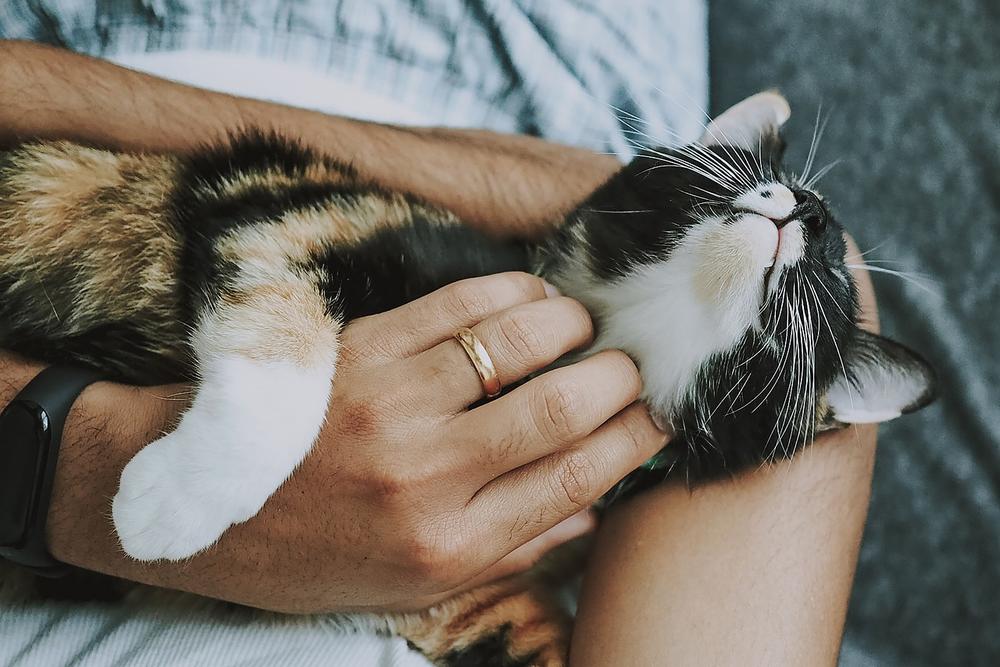
Here's how to decode cat headbutting and communicate effectively with your feline buddy:
- When your cat headbutts you, it means they see you as a leader and trust you.
- Cats have these special scent glands on their forehead, cheeks, and chin, packed with pheromones for communication.
- Headbutting is their way of marking you with their scent and making physical contact.
- You can mirror this gesture to create a unique way of communicating with your cat.
- Pay attention to their body language during headbutts, as it gives subtle hints about how they're feeling.
- If your cat isn't already doing it, start introducing gentle headbutting slowly.
- Be patient and let your cat be the one to initiate headbutts.
- Watch how they react to the headbutts - if they seem comfortable and relaxed, it shows they trust you.
- Use headbutting as an opportunity to strengthen your bond with your furry pal.
- Enjoy the growing connection between you and your four-legged companion. 😺
Now that you know how to decode cat headbutting and effectively communicate with your feline buddy, let's uncover the fascinating role headbutting plays in multiple cat households!
Cat Headbutting and Social Hierarchy
Cat headbutting is a behavior that helps establish social hierarchy and bonds among cats. It is a sign of trust and affection, as well as a way for cats to mark their scent on familiar individuals. Embrace this behavior as your cat seeks comfort and security in their relationship with you.
In households with multiple cats, it is common to observe headbutting as a means for one cat to assert dominance or reinforce their position in the hierarchy.
This behavior, also known as bunting, plays a vital role in establishing social hierarchy and forming bonds among cats within a colony or with familiar individuals.
Headbutting serves to create familiarity between felines and demonstrate respect. It is more frequently exhibited by confident and dominant cats compared to shy ones. Studies have revealed that headbutting can actually alleviate anxiety in cats, highlighting its importance in their social interactions.
When your cat headbutts you, interpret it as a sign of trust, affection, and a way for your cat to mark you with their scent.
Rather than discouraging or being afraid of this behavior, embrace it because your cat is seeking comfort and security in their relationship with you.
Instead of pushing them away, welcome the headbutt and respond with gentle pets or head rubs. Remember that headbutting is how cats express love and hierarchy, so cherish these moments of connection with your beloved furry companion.
But did you know that headbutting is not only limited to social hierarchy among cats?
There's more to this behavior that might surprise you!
In fact, during mating season, male cats like you use headbutting as part of their courtship ritual.
Keep reading to uncover this intriguing aspect of your feline instincts!
The Instinctual Origins of Headbutting in Cats
Male cats headbutt female cats during mating season, a behavior known as bunting.
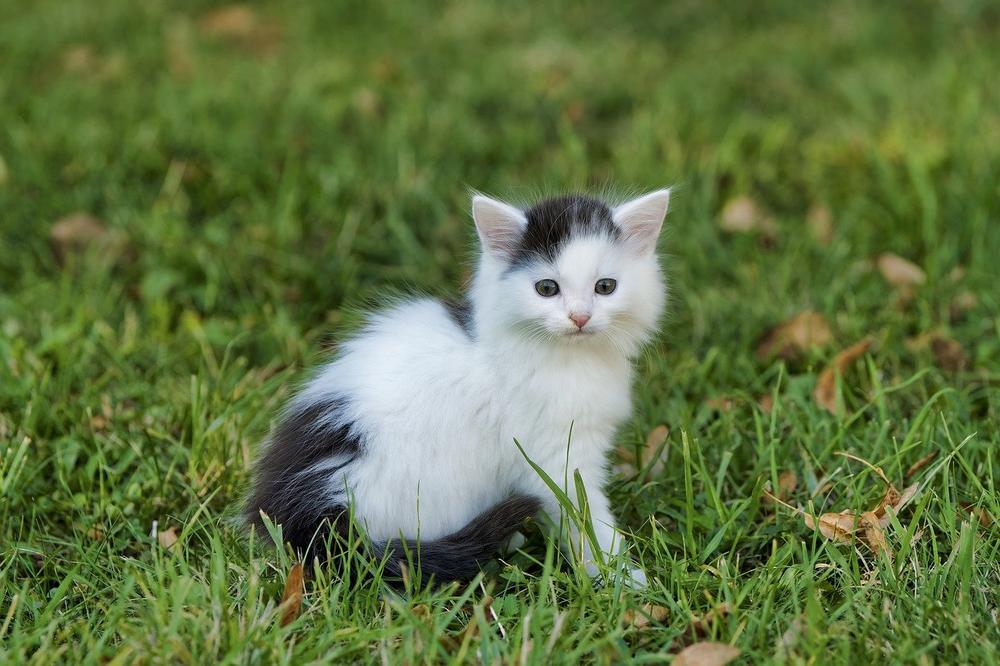
This ritual is not exclusive to our domestic pals but also occurs in wild cats.
Interestingly, you, like male cats, are more inclined to indulge in headbutting compared to females.
So, the next time you catch yourself engaging in this act, remember that it is an instinctual behavior ingrained within your feline nature.
Headbutting: Feline Affection and Trust-Building
When your cat bonks its head against you, it's not just a cuddle:
- Bonking is how cats seek attention and trust from their owners. It's their way of saying "You're my safe haven."
- They also bonk to show love to other pets in the family. It's like saying "You belong with us too."
- Bonking comes along with other cute acts like purring, flopping, kneading, slow-blinking, and snoozing by your side.
- But if your cat doesn't bonk, don't fret. They may have other ways to express affection.
- If your cat gives you a bonk and you bonk back, it strengthens the bond between you. This mutual exchange builds trust and cozy feelings.
- Remember that every cat has its own personality, so the meaning of bonking may vary. Watch their behavior and figure out what it means for them.
So, when your cat bonks you again, feel special - they're showing you love and trust!
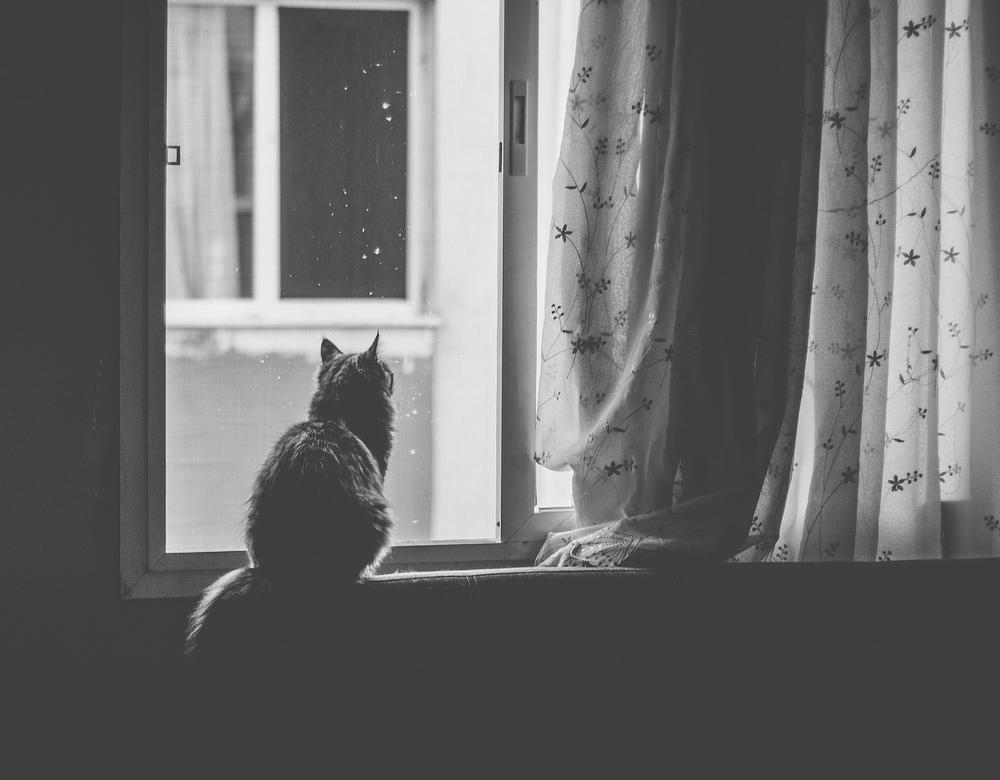
And if you're wondering why your kitty sometimes holds your hand, I have the answer for you! In my article Why Does My Cat Hold My Hand, I delve into the intriguing reasons behind this behavior.
Trust me, you don't want to miss this insightful guide that will satisfy your curiosity and provide you with all the answers you're seeking.
So go ahead, click on the link and unravel the mysteries of feline hand-holding!
Establishing Territory Through Headbutting
| Reason for Headbutting | Explanation |
|---|---|
| Affectionate Gesture | Cats often headbutt their owners as a sign of affection. By rubbing their scent onto their owners, they are reinforcing the bond and marking them as part of their territory. It's their way of showing love and trust. |
| Social Bonding | Headbutting is a social behavior that helps cats establish and strengthen their relationships. It promotes a sense of togetherness and companionship. When a cat headbutts you, they are seeking connection and creating a shared scent that signifies their familiarity and acceptance. |
| Scent Exchange | By rubbing their head against you, cats are transferring their scent onto you. This scent serves as a form of communication within their social group. It helps them recognize familiar individuals and distinguish them from outsiders. It also reinforces their territorial boundaries, making them feel more secure and in control of their environment. |
| Territory Assertion | When a cat headbutts you, it's also a way for them to assert their ownership and dominance over you. It's a behavior rooted in their natural instinct to establish territory. By marking you with their scent, they are claiming you as their own and reinforcing their position in the household hierarchy. |
| Attention-seeking | Cats sometimes headbutt to get their owner's attention. It can be a gentle way to nudge and remind you that they are there and would like some interaction or affection. If you respond to their headbutts, they understand that this behavior is effective in getting what they want, reinforcing the action. |
| Stress Relief | Headbutting can be a self-soothing behavior for cats. By rubbing against you, they release feel-good endorphins and reduce stress levels. It provides them with comfort and a sense of security, especially during times of anxiety or change. |
| Playful Interaction | In some cases, headbutting can be a part of a playful interaction. Cats may initiate headbutts during play to engage with you or other pets. It can be a form of social bonding and a way to establish the rules of their playtime. |
| Investigative Behavior | Occasionally, cats may headbutt objects or people to explore and gather information about their surroundings. It allows them to collect scents and learn more about their environment. This behavior is more common when encountering new or unfamiliar objects. |
Establishing Territory Through Headbutting
When your cat headbutts you, it's not just some vague display of affection.
The reason behind this peculiar behavior is actually quite fascinating.
You see, cats headbutt to establish their territory—plain and simple.
It's a clever way for them to create a shared scent, promoting a sense of communal space.
So when your precious feline friend decides to plant their head on you, they're essentially telling you, "Hey, I own you, buddy."
Okay, maybe they don't say it directly, but you get the point.
This behavior, known as head bunting, serves as both communication and territorial marking.
It's like they're rubbing their unique pheromones all over you, claiming you as part of their exclusive domain.
And guess what?
It's not only humans who receive these attention-seeking headbutts. Cats do the same to other furry creatures in the house.
By joining noses with fellow animals, they establish a common scent—a symbol of unity and belonging within their not-so-perfectly harmonious family.
Think of it as a secret flick of their tails, whispering, "We're all in this together."
Oh, and here's something interesting—the scent transfer isn't limited to living beings alone.
Oh no, cats also butt their heads against lifeless stuff nearby, depositing their aroma on those objects too.
Well, it helps them reinforce their personal boundaries and assert their ownership.
So don't be startled if your fluffy companion decides to claim your cherished pillow or cozy blanket as their own through a solid headbutt.
You know what that means, right?
Your belongings are now officially graced with the glorious presence of your regal feline.
But hold on, there's more to this story.
Cats have these nifty scent glands on their cheeks, which they skillfully use to mark their territory and set boundaries.
That's why when they bump into an object or a person, it's a gesture of recognition, trust, and security.
Essentially, they're saying, "Hey, this is mine, and I trust you enough to share it with me."
So the next time your lovely cat surprises you with a friendly headbutt, welcome it with open arms as a demonstration of their feline affection and territorial pride.
Congratulations!
You can proudly consider yourself part of their majestic kingdom now!
But here's the thing you may not know...
How to Respond to Cat Headbutting
When your cat bumps its head against you, that's a sign that it loves you.
But how should you react?
Here are some tips to make this precious moment count:
- Pay attention to your cat's body language: Take note of their tail, ears, and overall behavior. It will give you hints about their mood and whether they enjoy headbutting.
- Discover the sweet spot: Every cat has its favorite spots to be petted. Experiment with gentle strokes behind their ears, under their chin, or along their back. You'll soon find out where they love to be touched.
- Use soft and slow movements: Cats prefer gentle touches, so don't handle them roughly. Stroke their fur slowly or use light scratching motions to show them that you appreciate their headbutt.
- Engage with your cat: Talk to them in a soothing voice or even purr softly. This helps create a peaceful atmosphere and strengthens the bond between you and your feline friend.
- Respect their personal space: Not all cats enjoy constant attention. If your cat seems annoyed or walks away, give them some alone time. They'll come back when they're ready for more affection.
Every cat is unique, so what works for one may not work for another.
Take the time to understand your cat's preferences and respond accordingly.
With patience and love, your bond with your furry companion will only grow stronger.
And that wraps up today's article.
If you wish to read more of my useful articles, I recommend you check out some of these: Why Do Cats Sneak Around, Why Do Cats Kick Themselves, Why Do Cats Hate Getting Their Nails Cut, and Is Purring Involuntary in Cats
Talk soon,
-Sarah Davis